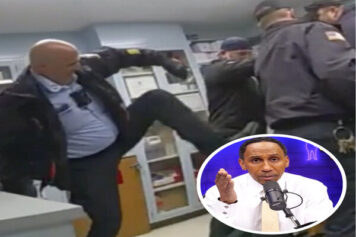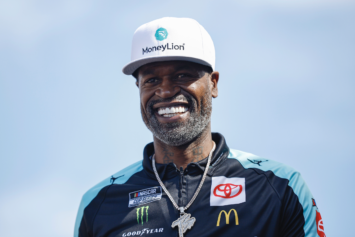Did the NCAA do Howard University Bison men’s soccer dirty back in 1971?
Players from the 1971 national championship-winning soccer team say yes. A new, groundbreaking podcast series will cast a glaring light on one of the most important sports stories the world barely knows.
Sports Explains The World
Journalist and filmmaker Mark W. Wright is not a let-it-go type of guy. When he learned of the story of Howard University’s national championship-winning soccer team whose title was vacated by the NCAA, he wanted to know why. When he pitched the story to ESPN in 2015, he tag-teamed with award-winning documentary filmmaker Kenan K. Holley and produced Redemption Song, a 30 for 30 short that mostly focused on Howard’s 1974 team that “won the trophy back.”
But Redemption Song, Wright said, only scratched the surface. “As great as Redemption Song was, it hardly focused on that ’71 team,” explained Wright, whose 3-episode podcast is part of an ambitious multiplatform series — executive produced by Meadowlark Media and Campside Media — called “Sports Explains the World.”
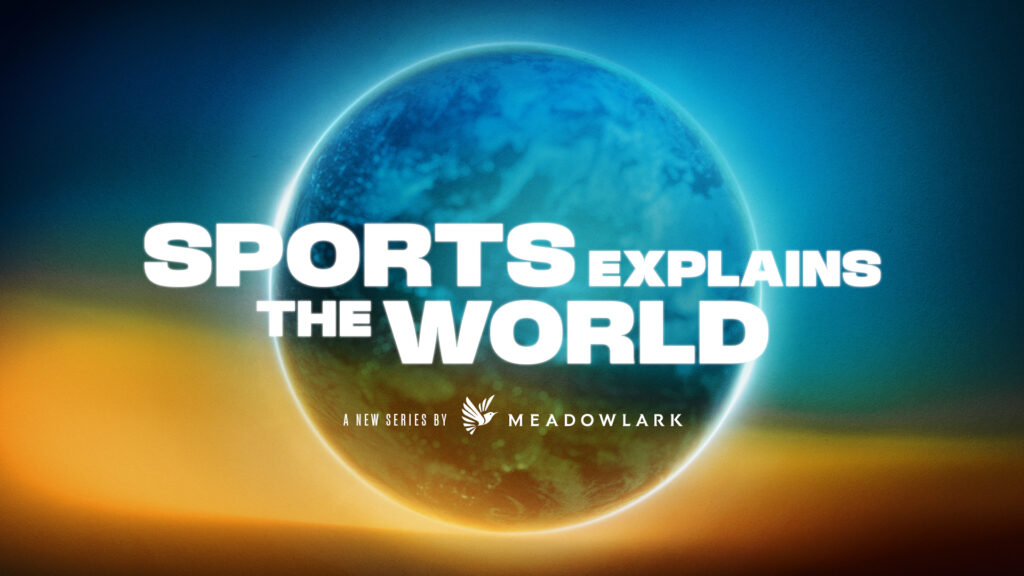
“Only three players from that ’71 team even played on the title-winning team in ’74, so there isn’t a strong connection between the two squads,” Wright continued. “They really have their own stories.”
The Shadow League caught up with Wright to get his take on why this story still matters more than five decades later.
TSL: This story is clearly personal to you. Why?
Wright: Well … it’s a story that belongs to Howard University, my alma mater. It’s a story about a game I lived and breathed, growing up in Jamaica. My high school coach played on the 1971 team, and I’ve grown close to many of his former teammates, who I know still have a hollow feeling in their chest that they were branded as cheats. They know in their hearts that they won the championship fair and square.
TSL: We don’t expect you to give away the podcast, but what did the NCAA accuse Howard of?
Wright: Howard got caught in the NCAA’s crosshairs starting in 1970, when the team reached the NCAA semifinals. Their success seemed to come out of the blue, so after Howard won the 1971 championship – going undefeated and beating powerhouse Saint Louis University – an anonymous source hit up the NCAA and claimed that Howard had knowingly used ineligible players.
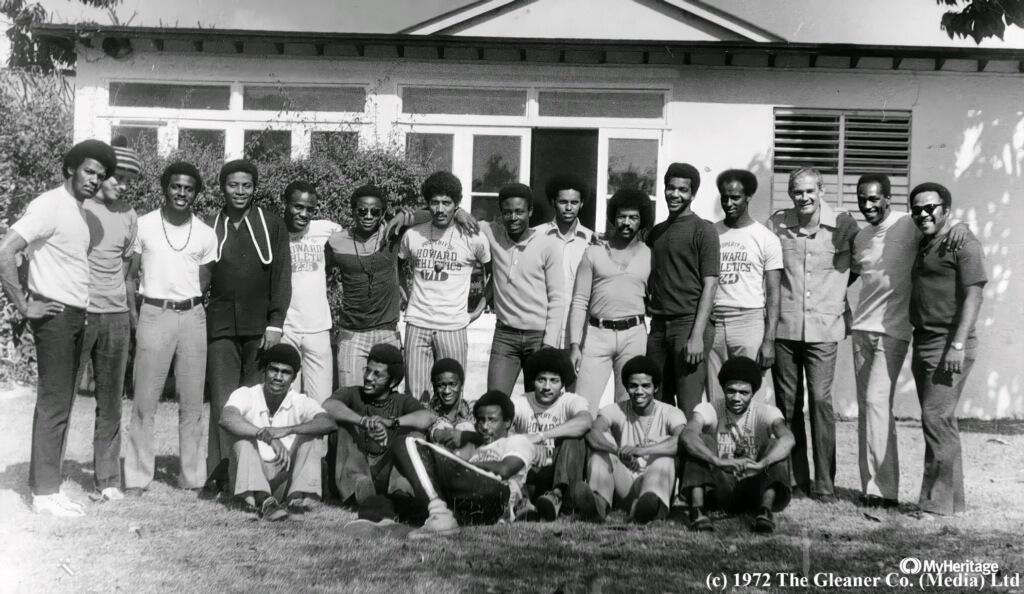
BACK ROW (L to R): Ernest Skinner, Ian Bain, Steve Waldron, Michael Billy-Jones, Olusegun Onadeko, Charlie Pyne, Keith Aqui, Samuel Tetteh, Zewdu Haplemariam, Sandy Daly, Eddie Holder, Amdemichael Selassie, Jamaican politician Michael Manley, Lincoln Phillips, Milton Miles.
FRONT ROW (L to R): Desmond Alfred, Tony Martin, Mori Diane, Ricky Yallery Arthur, Stan Smith, Alvin Henderson, Donnie Simmons.
TSL: Was there any truth to the rumor?
Wright: Well, that’s the debate. Ultimately, the NCAA won — it’s the NCAA after all. After concluding an investigation, they found that the school had violated three rules governing player eligibility, and the team was stripped of its 1971 title, stripped of a third-place finish in the 1970 tournament and banned from postseason play in 1973.
In the process, the NCAA stripped Howard of its ability to grow its program forever.
TSL: And so, this story has sort of vanished?
Wright: It certainly was forgotten for many years. Walk on Howard’s campus even today, and you’d be hard-pressed to see a proper representation of this team. That’s the piece that’s most hurtful, and so I feel it’s important that we tell this story while many of those players are still with us.
TSL: How can we find the podcast?
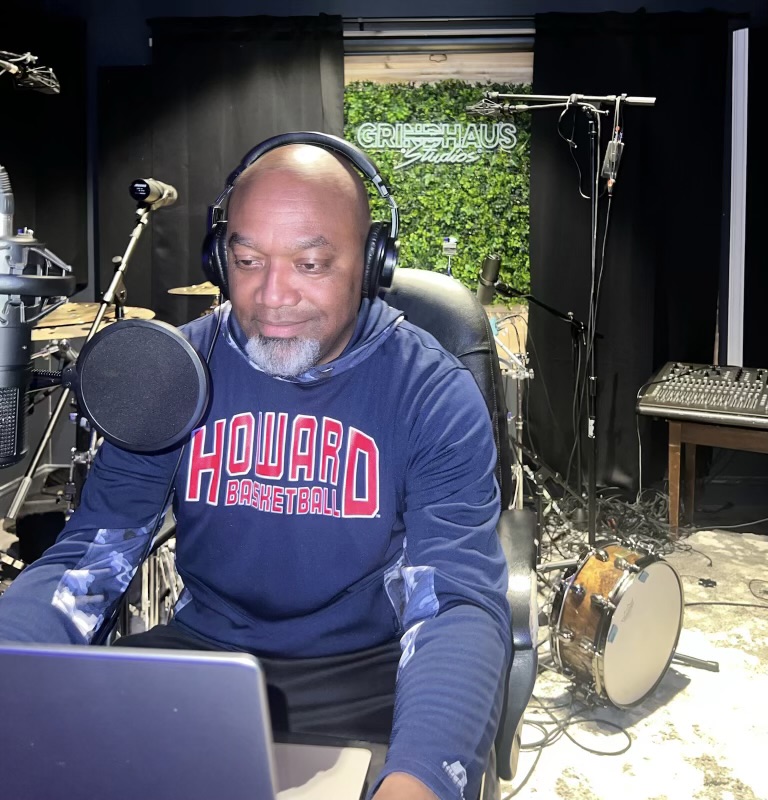
Wright: “The Bison Project” debuted on WONDERY Plus on Nov. 8, and after roll out weekly — starting with Episode 1 on Nov. 15; Episode 2 on Nov. 22; and Episode 3 on Nov. 29 — on all other podcast platforms.
TSL: What do you personally hope comes from this podcast …?
Wright: I was blessed to interview many of the former players and Howard students who lived the experience and asked them that very question. They told me — almost to a person — that it’s most important that their voices are heard, and that the NCAA doesn’t get the last word, which they’ve had for 52 years now.
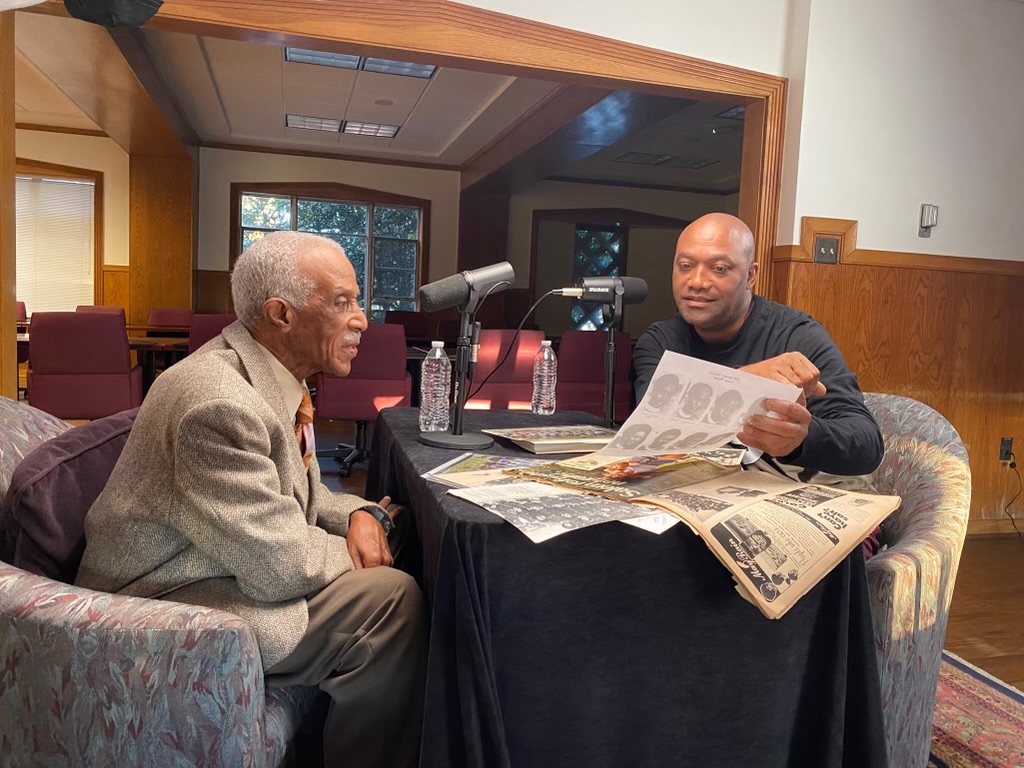
These legends want their grandkids to know that they’re part of history, and not just history as part of the first national champion in the modern era to have its title taken away.
TSL: You’ve said this isn’t just an HBCU story, or a sports story – but a sports story that America never got a chance to celebrate. Why do you say that?
Wright: People, regardless of race, creed, or religion, want to see fairness win. They don’t generally delight in seeing marginalized people lose. And this tale is really that — a story about a group of young men, most of whom were immigrants from across the Caribbean and Africa who came here to experience the best of what America can give. And, at least in this episode, they got screwed. So, you can understand why the impact of this story goes way beyond sports.
TS: How can we find out more about “The Bison Project”?
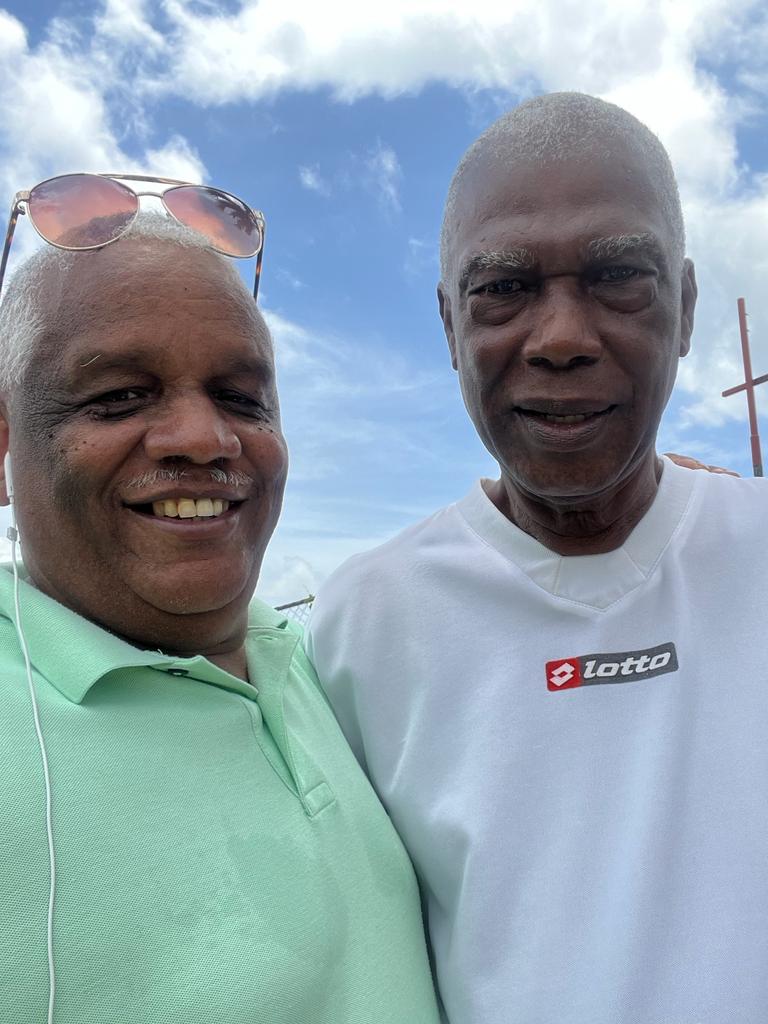
Wright: Even though all three episodes amount to 102 minutes, the players’ stories alone are so rich it was impossible to tell every story. Our website — www.TheBisonProject.com — is a nice complement to the podcast, with profiles and photos and links to other stories.
Mark W. Wright is Charlotte, NC-based sports journalist and documentary filmmaker who has tracked this story for close to a decade. For more information, visit www.TheBisonProject.com.

